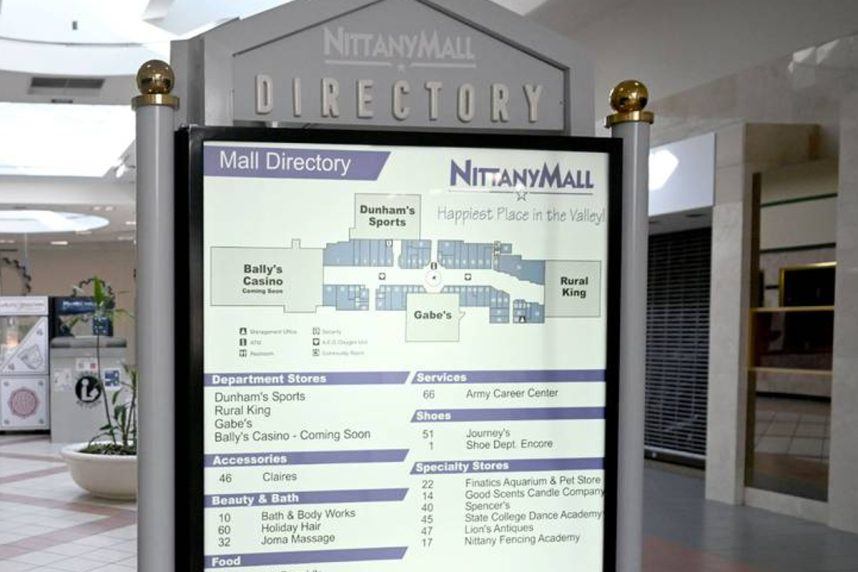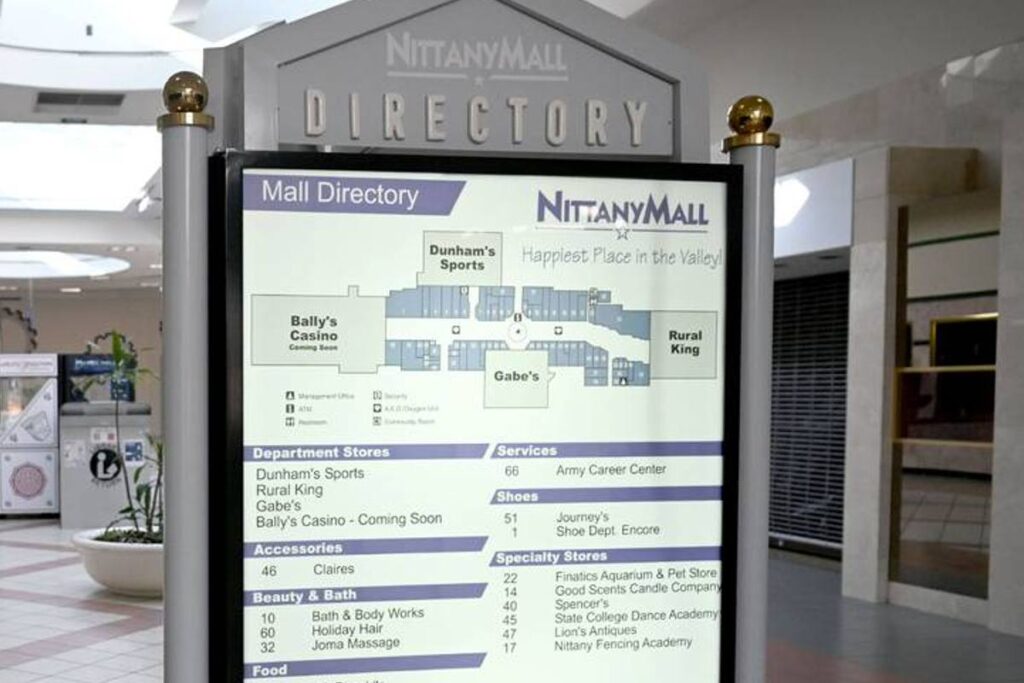Posted on: July 18, 2024, 05:08h.
Last updated on: July 18, 2024, 07:05h.
The Bally’s Corporation and its local development partners in State College, Pa., near Penn State University this week scored a major court victory.

More than 10 months after the Pennsylvania Supreme Court agreed to hear an appeal of the Pennsylvania Gaming Control Board’s (PGCB) decision to issue a gaming license to a casino project at State College’s Nittany Mall, the state’s high court ruled that the plaintiff’s arguments are without merit.
Stadium Casino RE, LLC, the losing bidder for the PGCB’s September 2020 auction round for the Category 4 “mini-casino” license, challenged whether winning bidder Ira Lubert violated the state gaming agency’s application rules. Category 4 casinos were made available through a 2017 gaming expansion package but only the state’s current slot license holders and significant investors in the concessions qualified to bid on the satellite venues.
Lubert, through his 3% equity stake in Rivers Casino Pittsburgh, qualified for the auction. So did Stadium Casino, a fully owned subsidiary of The Cordish Companies, which at the time was constructing Live! Casino & Hotel Philadelphia.
Challenge Dismissed
Stadium attorneys argued that Lubert violated PGCB bidding rules by orchestrating a partnership with two other Pennsylvania businessmen — Robert Poole and Richard Sokolov, the latter being a current trustee of Penn State University — before submitting his $10,000,101 winning bid. Since Poole and Sokolov didn’t qualify to bid independently, Stadium alleged Lubert’s bid should have been disqualified.
The Pennsylvania Supreme Court this week didn’t agree.
It is undisputed that although the funds were wired from Lubert’s account, he did not pay the entire amount himself, as various individuals and entities contributed funds toward the payment of the winning bid,” the court conceded.
But Justice Christine Donohue, who wrote the court’s unanimous opinion and was joined by Chief Justice Debra Todd and Justices Kevin Dougherty, David Wecht, Sally Updyke Mundy, Kevin Brobson, and Daniel McCaffery, said it rejects “Stadium’s attempt to equate financial interests with ownership.”
Though Poole, Sokolov, and anyone else, including possibly Bally’s, who helped Lubert pay the $10 million fee within 48 hours of winning the Sept. 2, 2020, auction might have been told they’ll receive stake or shares in the forthcoming casino, the court ruled that Lubert at this time retains 100% control of the Cat. 4 license. For that to change, the PGCB would need to approve the additional owners after conducting background checks on those individuals/entities to make sure they’re suitable to hold direct ownership in a state gaming license.
Therefore, the state Supreme Court concluded that the PGCB did properly vet Lubert’s bid or payment, and Lubert also acted appropriately, or at least within the applicable law.
Township Welcomed Casino
About five months after Lubert, through his entity SC Gaming OpCo, paid the $10 million fee in exchange for the Cat. 4 license, the former Penn State trustee announced Bally’s Corp. as the $123 million casino’s development partner and future operator.
The development group in early 2021 revealed plans to renovate a former Macy’s department store at the Nittany Mall just a few miles from the Penn State University Main Campus into a casino with up to 750 slot machines and an initial allotment of 30 table games, plus a sportsbook.
The Pennsylvania Supreme Court decision clears the way for Lubert and Bally’s to begin construction on its mall casino, though no timeline’s yet been made public.
A grassroots coalition of residents in the State College community continues to inundate Casino.org’s coverage of anything related to Bally’s with comments against the company, which is amid financial turmoil and has faced recent credit downgrades. The Pennsylvania residents have expressed hostility to a possible casino coming to their community and have focused their outrage on Bally’s recent operational blunders.
However, the blame for the Bally’s Pennsylvania project might be better directed at the College Township Council, which failed to opt out of being considered for a Cat. 4 casino in 2017 when the PGCB allowed municipalities to exclude themselves from being targeted for a mini-casino. More than 1,000 other townships withdrew from consideration.




